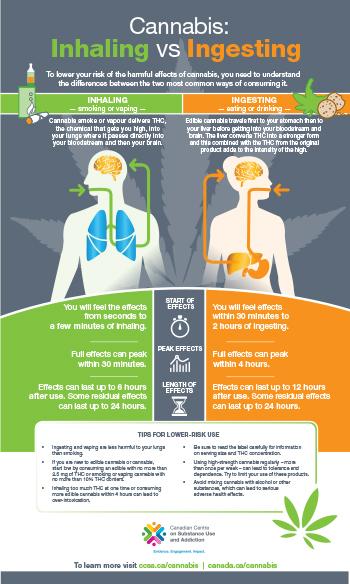In recent years, the landscape of cannabis has shifted dramatically, transforming from an illicit substance to a focal point of cultural and medical discourse. As legalization sweeps across various states and countries, the conversation surrounding marijuana has evolved, inviting a myriad of perspectives on its consumption. Beyond the colorful narratives and anecdotal evidence lies a more nuanced discussion: the effects of smoking marijuana—both beneficial and adverse. In this exploration, we will delve into the complex interplay of cannabinoids and the human body, examining how the act of smoking influences physical, psychological, and societal dimensions. By shedding light on both the highs and the lows, we aim to provide a balanced view that captures the multifaceted nature of marijuana use in today’s world.
Table of Contents
- Understanding the Immediate Impacts of Marijuana Use on Cognitive Functions
- Exploring Long-Term Health Consequences of Habitual Cannabis Consumption
- Navigating the Social and Psychological Effects of Marijuana on Daily Life
- Strategies for Responsible Use and Harm Reduction in Cannabis Consumption
- Q&A
- To Wrap It Up
Understanding the Immediate Impacts of Marijuana Use on Cognitive Functions
Marijuana use has been shown to produce a range of immediate effects on cognitive functions. When consumed, the active compounds in marijuana, particularly tetrahydrocannabinol (THC), bind to cannabinoid receptors in the brain, influencing various cognitive processes. Users often report changes in their perception, attention, and memory. These changes can manifest as:
- Altered perception of time – Users may feel that time is passing more slowly or quickly.
- Heightened sensory perception – Colors may appear more vibrant, and sounds may seem more pronounced.
- Short-term memory impairment – Difficulty recalling recent events or information is common.
- Decreased attention span – Users might find it challenging to concentrate on a single task.
The implications of these cognitive changes can be significant, especially in contexts requiring focus and decision-making. Studies have suggested that marijuana use can hinder the ability to perform complex tasks and make sound judgments. The following table highlights some specific cognitive areas affected by marijuana use:
| Cognitive Function | Effect of Marijuana Use |
|---|---|
| Memory | Impairment in recalling recent information |
| Attention | Decreased focus and prolonged attention span |
| Decision-making | Challenges in weighing options effectively |
| Motor Skills | Reduced coordination and reaction time |
Exploring Long-Term Health Consequences of Habitual Cannabis Consumption
The evolving landscape of cannabis research has shed light on the potential long-term health consequences associated with habitual use. While many users tout its benefits, emerging studies have revealed a complex interplay of effects on both mental and physical health. Notably, cognitive impairment is a significant concern, particularly in heavy users who may experience declines in attention, memory, and learning capabilities over time. These effects can be exacerbated by the age at which a person begins consumption, with evidence suggesting that adolescents are particularly vulnerable to long-lasting changes in brain structure and function.
Moreover, habitual consumption of cannabis has been linked to a range of respiratory issues, drawing parallels to the effects of tobacco smoke. Regular smoking can lead to chronic bronchitis, increased coughing, and phlegm production. To highlight these health concerns, it’s essential to consider the various risks that arise from prolonged use:
- Psychological disorders: Potential exacerbation of anxiety and depression.
- Social impacts: Impaired motivation and diminished life satisfaction.
- Physical health: Increased risk of respiratory infections and chronic lung disease.
Understanding these potential consequences is vital for users and health professionals alike, as it encourages informed choices regarding cannabis use and its implications on long-term health.
Navigating the Social and Psychological Effects of Marijuana on Daily Life
Understanding the social dynamics spurred by marijuana use can illuminate its pervasive influence on daily interactions and relationships. As individuals engage with others while under the influence, they may experience shifts in communication styles and emotional responses. Key social effects often include:
- Altered Perceptions: Users might misinterpret social cues, leading to misunderstandings.
- Enhanced Creativity: Some find that cannabis ignites novel ideas during conversations, fostering profound connections.
- Increased Anxiety: For some, social situations may provoke heightened anxiety levels, negatively impacting interactions.
On a psychological level, marijuana can lead to significant fluctuations in mood and cognition that are felt daily. These changes not only affect the user but also ripple out to their social circles. Common psychological effects include:
- Elevated Mood: Many users report feelings of euphoria and relaxation, enhancing social experiences.
- Short-term Memory Impairment: This can hinder the ability to engage fully in conversations and recall important details.
- Dependence Risks: Regular users may develop psychological dependence, influencing stress responses and emotional regulation.
Strategies for Responsible Use and Harm Reduction in Cannabis Consumption
As the visibility of cannabis consumption rises, adopting responsible practices is essential to mitigate potential risks and enhance the overall experience. Awareness is key; consumers should familiarize themselves with the potency of the strain they choose, especially with the prevalence of high-THC options. Start low and go slow is a popular mantra—initiating with lower doses allows individuals to gauge their tolerance and avoid overwhelming effects. It’s also important to consider consumption methods, as smoking might not be suitable for everyone; alternatives like edibles or vaporizers may provide a gentler experience with less impact on respiratory health.
Additionally, creating a comfortable environment can enhance the enjoyment and safety of consumption. Engaging in cannabis with trusted friends can foster a supportive atmosphere and minimize feelings of anxiety or paranoia that some may experience. Keeping hydration and snacks on hand can help counteract the dry mouth and munchies commonly associated with marijuana. When exploring these substances, being mindful of local laws and responsibilities, such as not driving under the influence, is crucial. To summarize effective approaches, consider this table:
| Strategy | Description |
|---|---|
| Know Your Strain | Understand THC/CBD content and effects. |
| Start Low, Go Slow | Begin with a minimal dose to assess tolerance. |
| Safe Environment | Consume in a familiar and comfortable setting. |
| Stay Hydrated | Keep water handy to combat dry mouth. |
| Engage Responsibly | Avoid driving and respect local laws. |
Q&A
Q&A: Exploring the Effects of Smoking Marijuana
Q: What are the primary effects of smoking marijuana on the body?
A: Smoking marijuana primarily affects the central nervous system, leading to altered sensory perception, relaxed muscles, and enhanced mood. Users may also experience increased heart rate, dry mouth, and red eyes. These physical effects stem from the active compounds found in marijuana, particularly THC (tetrahydrocannabinol), which interacts with the brain’s cannabinoid receptors.
Q: How does marijuana affect mental functioning?
A: Marijuana can influence mental processes in various ways. Short-term effects often include euphoria, creativity, and heightened sensory awareness. However, it can also impair short-term memory, attention, and decision-making capabilities, which may hinder day-to-day activities. For some, these effects can be pleasant, while others may experience anxiety or paranoia.
Q: Are there long-term effects associated with regular marijuana use?
A: Yes, long-term smoking of marijuana may lead to potential risks, including respiratory issues similar to those associated with tobacco smoking, such as chronic bronchitis. Research is ongoing into the long-term cognitive impacts, which can vary widely among individuals, with some studies suggesting possible declines in cognitive function, especially if use begins in adolescence.
Q: How does marijuana use affect mental health?
A: The relationship between marijuana and mental health is complex. While some individuals report relief from anxiety and depression symptoms, heavy use has been linked to increased risk of mood disorders and can exacerbate existing mental health conditions. Individuals with a history of psychosis or related disorders may be particularly vulnerable.
Q: Can marijuana impact motivation and daily functioning?
A: Some users report a phenomenon known as “marijuana-induced amotivation,” where they feel less driven to engage in daily tasks or responsibilities. This effect can be dose-dependent and may vary among users. However, not everyone experiences this, and some may find that marijuana enhances their creativity and motivation.
Q: Is there a difference in effects between smoking and other forms of marijuana consumption?
A: Yes, the method of consumption can influence the effects of marijuana. Smoking provides a quicker onset of effects compared to edibles, which may take longer to kick in but tend to produce a more prolonged experience. Additionally, alternative consumption methods, such as oils or tinctures, allow for precise dosing and may reduce the respiratory risks associated with smoking.
Q: What should potential users keep in mind before trying marijuana?
A: Potential users should consider their own health conditions, mental health history, and the legal status of marijuana in their area. It’s also important to start with a low dose, particularly for new users, to gauge individual reactions and effects. Consulting healthcare professionals can provide personalized guidance and help mitigate potential risks.
Q: Are there any therapeutic uses for marijuana?
A: Yes, marijuana has been studied for various therapeutic applications, particularly in managing chronic pain, nausea from chemotherapy, and certain neurological disorders like epilepsy. However, these uses should be approached with medical guidance to ensure safety and efficacy.
Q: What is the consensus on the overall effects of smoking marijuana?
A: The consensus highlights that marijuana affects everyone differently based on individual biology, mental state, and context of use. Its effects can range from beneficial to adverse, emphasizing the importance of informed, responsible use. As research evolves, understanding its nuanced impact remains crucial for potential users.
To Wrap It Up
the effects of smoking marijuana are as multifaceted as the plant itself, weaving through the realms of physical health, mental well-being, and social dynamics. As society continues to navigate the evolving landscape of cannabis, it is crucial to approach the discussion with an open mind and a balanced perspective. Whether one views marijuana as a path to relaxation and creativity or as a potential risk factor for adverse outcomes, understanding its diverse effects empowers individuals to make informed choices. Just as with any substance, the key lies in moderation and awareness. As we look to the future, let us foster a dialogue grounded in education, research, and personal experience, ensuring that the narrative around marijuana remains nuanced and informed.


